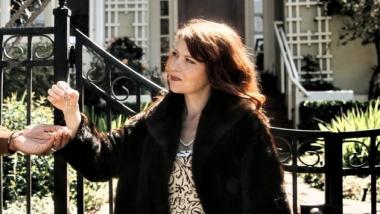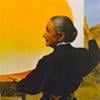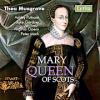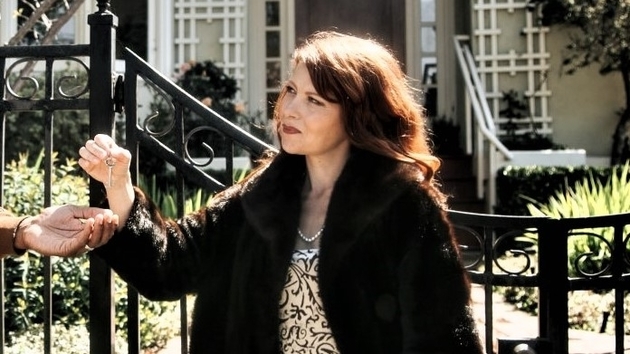
When a few scenes from Howards End, America, the new chamber opera by award-winning composer and singer Allen Shearer and monologue artist, playwright, and librettist Claudia Stevens (their sixth opera together) were put up by West Edge Opera in its 2017 Snapshot series, several members from San Francisco’s contemporary music ensemble Earplay were on hand, including conductor Mary Chun and a number of players in the orchestra. It was there that the interest was sparked for a partnership between Shearer, Stevens, and Earplay to produce the opera in its entirety.
Now, two years later, Howards End, America will make its world premiere at Z Space in San Francisco on February 22–24, marking Earplay’s first foray into chamber opera. Directed by Philip Lowery, the three-act opera will include a 13-piece orchestra comprising core members of Earplay and conducted by Chun, and seven of the novel’s main characters, portrayed by singers Nikki Einfield, Philip Skinner, Sara Duchovnay, Michael Dailey, Daniel Cilli, Erin Neff, and Candace Johnson. Black and white projections by production designer Jeremy Knight, will visually enhance and support the storyline.
Based on the novel Howards End by E.M. Forster, Shearer and Stevens, whose last collaboration Middlemarch in Spring, premiered in 2015 and was based on the novel Middlemarch by George Eliot, have once again taken a classic piece of literature and turned it into something more au courant, moving it from Edwardian England to Boston in the 1950s.
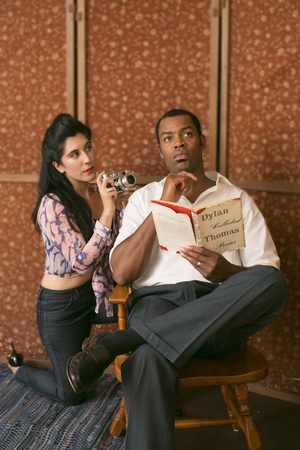
I chatted with Shearer (AS) and Stevens (CS), (a married couple as well as musical collaborators) by telephone from their home in Oakland, about their reasons for choosing Howards End, what they wanted to express, and their creative process.
Why did you choose Howards End for this project?
CS: It’s like a lot of things — suddenly you see that something can work. There was this wonderful novel with a great plot and characters. There were the illicit love affairs, there was manslaughter — it was very operatic.
Why did you choose to set the opera in Boston in the 50s?
CS: It just seemed to work for a lot of reasons. Allen and I are old enough to remember the 50s — the McCarthy hearings, the way that people treated each other, the way they spoke. We also wanted it to be for an American audience, and we were very interested in connecting the novel to our own time and society — there’s still quite a lot of that underbelly of racism and hypocrisy that has filtered and extended into our own time. It has really found its relevance increasingly in the past few years, perhaps even to a greater extent than we envisaged when we started out with it.
How do you work together to create an opera?
AS: It’s a back-and-forth right to the end of the process. I’m a composer who starts with something small, and then it puddles out. I always start with words and the way they would be best sung, with the best kind of inflection for whatever the situation is, and then we go on from there.
Claudia has a very good sense of what is going on onstage and how much time it takes to execute a certain action to get the scene together, which is a great help to me. But that’s not the whole work of an opera — you need to find a big arc to it, and make sure that the whole thing keeps the interest up. That’s why it takes two or three years to write an opera.
CS: Some composers create their own libretto, so they work back and forth between two aspects of their own imagination, but I think the way Allen and I do it is more typical. The librettist presents the composer with material, and then there’s a back and forth. For us, because we’re right here, and we talk about it all the time, we have streamlined the process. So if he objects to a word or a phrase, I can change it within half an hour, and then give it back to him. And if something doesn’t seem right to me in the timing of a text setting, or doesn’t seem to be the right mood, I can say so, and we can deal with that right away.
It’s great that you can work together this way.
CS: We’ve been fortunate in the respect that we can help each other and also be each other’s great critics — it has worked nicely.
What are the different elements in your adaptation?
CS: In the film and television versions of Howards End, the class warfare is what pits people against each other. You’ve got the upper-class Wilcox family and the Schlegels, who are elites, and you have the Basts who are poor and struggling to raise themselves up.
In our adaptation, there is a culture war going on, which is very pronounced, and the underprivileged folks are black. And there is a culture war between the music of the Basts and the music of the rest, which is represented, interestingly, by fragments of Beethoven and Western music that insinuates itself here and there.
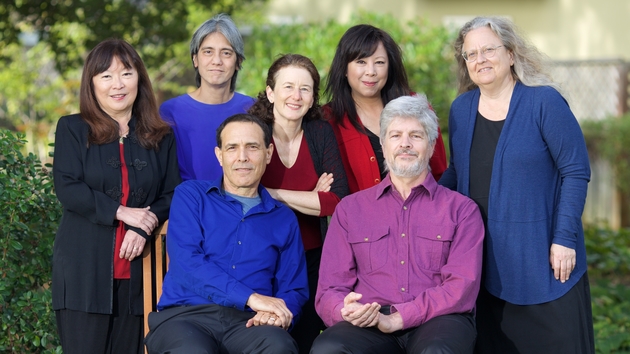
What do you think E.M. Forster would say about this interpretation of his novel?
AS: I don’t know what he knew about America, but it would probably be a bit of a shock to see his British characters transformed into Americans. I’d like to think that he would be pleased, but he was a tricky kind of character. He was not terribly social and kind of kept to himself. And if you asked him, he might have just passed on the question.
CS: I think that what ultimately Forster wanted to say in all of his work was that the denial of feelings is a terrible thing. When people suppress their feelings or are hypocrites, not only does it hurt them, but it has far-reaching implications for other people, and we have really been true to that concept.
What do you think the takeaway message is?
CS: Howards End, America will retain the essence of Forster’s real purpose, which was about the expression of the heart being absolutely paramount. What we want is to leave the audience with an understanding of the importance of feeling and honesty, but also with some questions. But there is hope, and I think we have suggested that with the ending.
Correction: The article, as originally published, mispunctuated the title of the opera and its source novel.

